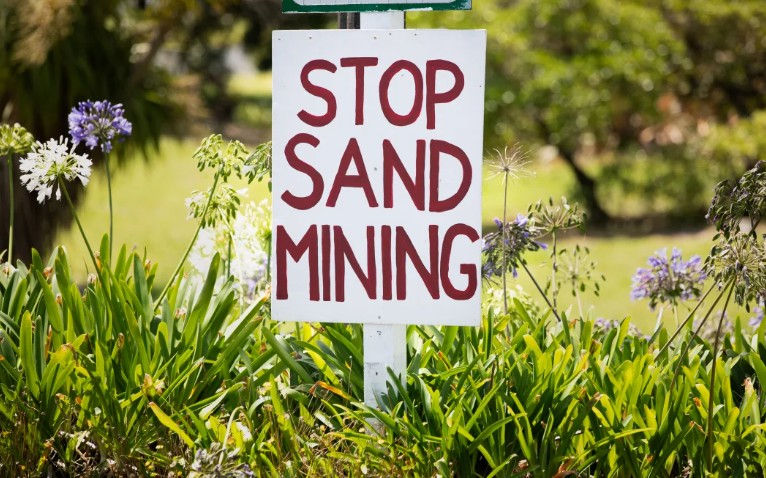Election Survey Reveals Strong Candidate Opposition to Sand Mining Te Akau Bream Bay
- Sep 5, 2025
- 3 min read
A comprehensive survey of local election candidates has revealed overwhelming opposition to a fast-track sand mining proposal that threatens to destroy the seabed at Te Akau Bream Bay.
The survey, conducted by the Whangārei Heads Citizens Association's "Say No to Sand Mining Te Akau Bream Bay" Sub-Committee, found that 35 out of 41 candidates running for Whangārei District Council oppose the McCallum Brothers Ltd application to extract 8.5 million cubic metres of marine sand from Te Akau Bream Bay over 35 years.

Community Research Drives Voter Awareness
Melissa Arseneault, a local group member who helped coordinate the candidate survey, explains the motivation behind their research efforts.
"We want to ensure voters have the information they need to make informed choices about who will represent their values," Arseneault says. “It is important we have elected members that represent the concerns of local communities on significant issues like mining of marine sand in Te Akau Bream Bay. These results highlight the overwhelming opposition not just in coastal communities but throughout the Whangarei District. We all have a voice and a vote and now is the time to use both.”
The proposed mining operation has raised serious concerns about impacts on marine life, including endangered species, coastal erosion, and the disruption of fish habitats that local communities depend on.
Fast-Track Process Highlights Importance of Local Representation
The mining application is being processed under the government's controversial fast-track legislation, which bypasses normal regional council decision-making processes and limits community consultation opportunities.
Natalie Jessup, General Manager from Tāngaro Tuia te Ora, the Endangered Species Foundation, emphasises why having the right local representatives is crucial during this process.
"Local councils could potentially have a say in fast track proposals. It is therefor highly important we have representatives who represent local community concerns and who value sustainability. Everyone over the age of 18 can have a voice in these local body elections and we urge you to vote."
Candidates Cite Environmental, Cultural and Economic Concerns
The candidate statements reveal deep concerns about the environmental and cultural impacts of the proposed mining. Many cited the lack of economic benefits for Northland, potential damage to marine ecosystems, and the importance of respecting mana whenua perspectives.
Scott McKenzie, a current Whangārei District Councillor seeking re-election, stated:
"The sand there was put in place by the Waikato River thousands of years ago and it cannot naturally be replenished. Once it is gone, it is gone forever."
Phoenix Ruka, standing for the Whangārei District Māori Ward, emphasises cultural connections:
"Our whakapapa is tied to the moana and whenua. Stripping it away for profit goes against our role as kaitiaki."
Many candidates expressed frustration about the economic inequality inherent in the proposal, with profits flowing to Auckland while Northland bears the environmental costs.
Ken Couper, Bream Bay Ward Councillor and mayoral candidate, captured this sentiment:
"I do not support sand mining... Auckland will have the financial benefit while Whangarei and Bream Bay will carry all the ecological, economic and environmental risk. There will be no jobs created here in Northland."
Broader Implications for Marine Conservation
The Bream Bay sand mining proposal represents a critical test case for New Zealand's approach to marine conservation versus resource extraction. Similar operations, which have just stopped, at Mangawhai and Pakiri have been linked to coastal erosion and habitat destruction, with courts recognising the immense ecological and cultural harm caused.
The area supports diverse marine life and serves as habitat for threatened species. Local hapū have been conducting three years of research documenting the rich biodiversity that would be at risk from the mining operation.
With local body elections approaching, the survey results provide voters with crucial information about where candidates stand on this defining environmental issue. The research demonstrates how local democracy can be a powerful tool for environmental protection when communities organise to hold their representatives accountable.
Make an informed voting choice
The complete candidate survey results and individual statements are available below, helping ensure voters can make informed choices about who will best represent their environmental values in the years ahead.



